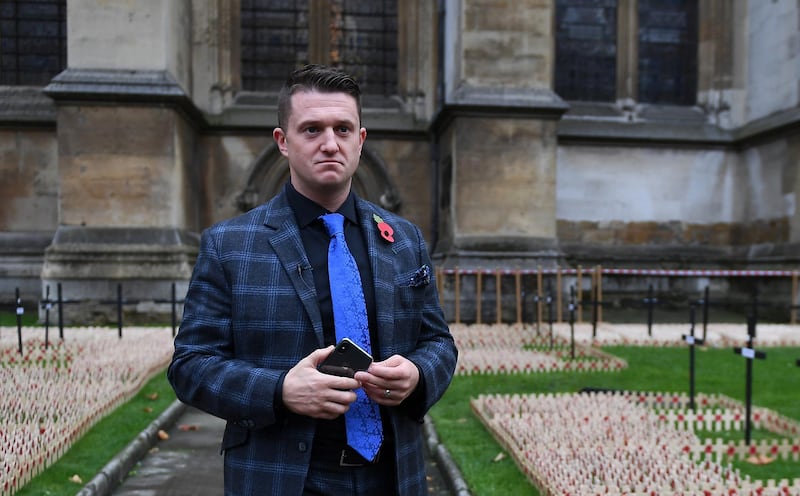YouTube has suspended advertisements on the channel belonging to far-right activist Tommy Robinson therefore preventing him from making money from his videos.
Mr Robinson, real name is Stephen Yaxley Lennon, has more than 270,000 subscribers on his channel.
YouTube allows content creators with high levels of subscribers and watch time on their channels to a share of the income from advertisements that play before their videos.
The technology giant said on Thursday it was suspending advertising on Mr Robinson’s channel because it had broken the company’s rules.
"We have suspended ads on Tommy Robinson’s YouTube channel as it breaches our advertising policies," a YouTube spokesperson said.
YouTube appear to have already placed restrictions on how a video uploaded by Robinson, who founded the far-right English Defence League, will be shown to users.
The 35-year-old uploaded a screenshot of an email sent by YouTube earlier this week which said it had placing a warning message on before the video played and disabled comments, sharing, thumbs up and suggested videos. It added that the video would be “ineligible for monetisation”.
The video- a wrap up of 2018- includes footage which Mr Robinson claims is him punching a migrant in Italy.
__________________
Read more:
Mr Brexit quits party over anti-Muslim fixation
Brexit party leader hires prominent anti-Muslim extremist as adviser
Opinion: Ukip shows its true face with Tommy Robinson's appointment
__________________
Tech companies have been under pressure from governments in the West to clamp down on extremist or propaganda material appearing on their sites.
On Thursday, Facebook revealed it had removed 364 fake pages and accounts linked to Russia.
The social media firm said the pages were posing as independent news sites in eastern Europe but were actually being run by employees from Sputnik, a Russian state news agency.
There was political content, though, especially in the Baltics, and focused on minority issues and NATO. pic.twitter.com/bXg2CnaHHq
— Ben Nimmo (@benimmo) January 17, 2019
Some of the accounts, targeting countries in the Baltic, eastern Europe and the Caucasus, regularly posted about "anti-Nato sentiment, protest movements, and anti-corruption", Facebook said.
Sputnik accused Facebook of acting politically in its decision to remove the pages.
"The decision is clearly political in its nature and is practically censorship — seven [Facebook] pages belonging to our news hubs in neighbouring countries have been blocked," a statement released by the news agency on Thursday read.
"Sputnik editorial offices deal with news and they do it well. If this blocking is Facebook's only reaction to the quality of the media's work, then we have no questions, everything is clear here. There is still hope that common sense will prevail," it added.
Separately, Facebook said it had also removed more than 100 pages, groups, accounts that originated in Russia and operating in Ukraine.
The tech company said it had not found any links between the two operations but both had “used similar tactics by creating networks of accounts to mislead others about who they were and what they were doing”.







